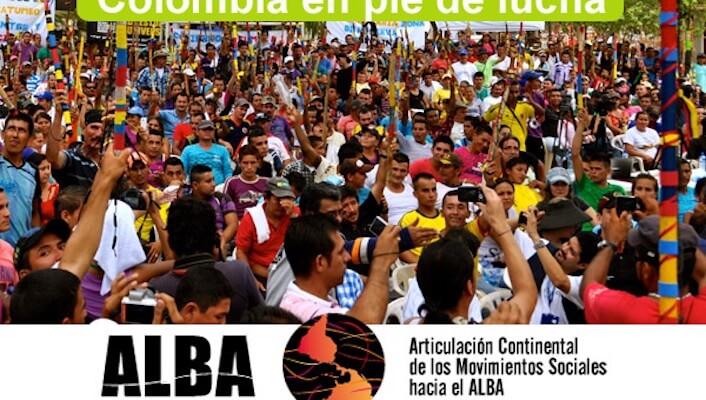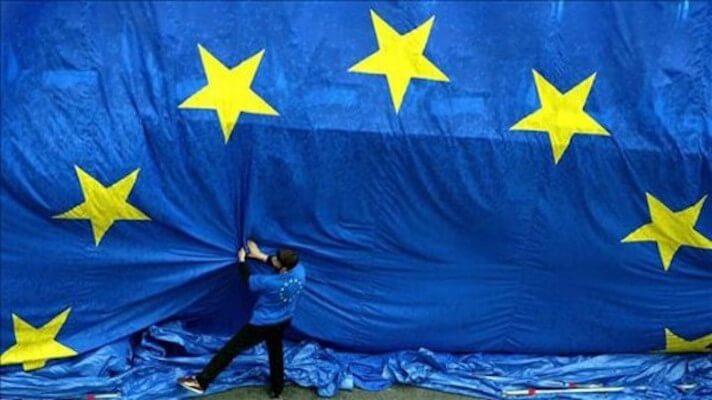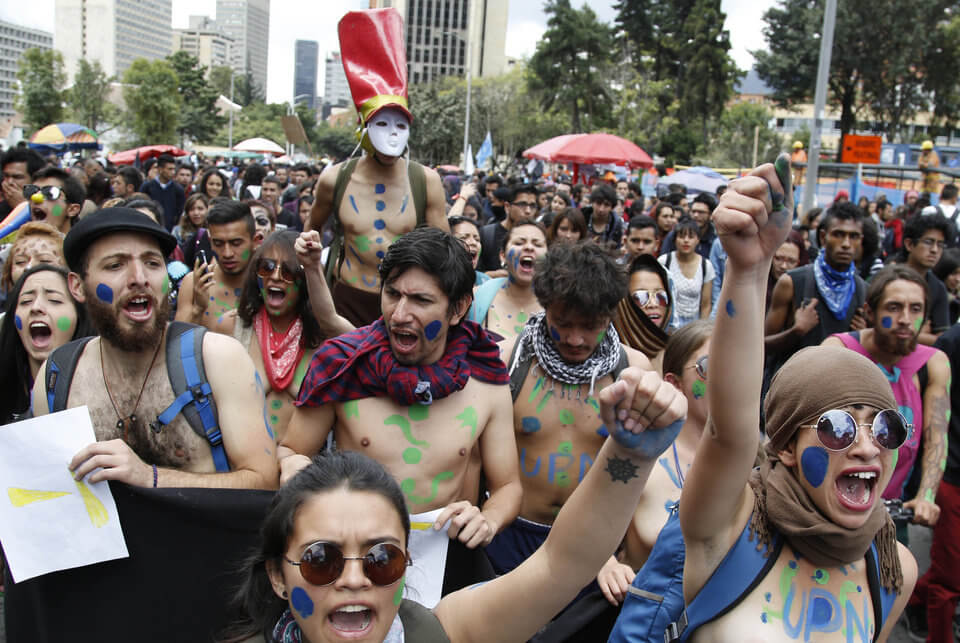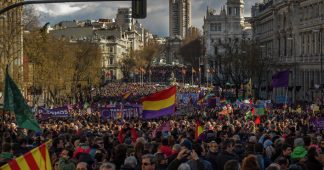Source: Resumen Latinoamericano / The Dawn News / May 17, 2016.
Last April 15 in the IMPA(1) headquarters and with a large turnout, an open talk was held in the context of the inauguration of the Popular University of Social Movements (UPMS). Under “the idea of a counter-hegemonic pedagogy for peace” the UPMS proposes a collective and horizontal space for exchanging knowledge and creating a coordination between intellectuals, popular movements and their struggles. After several working sessions, the inauguration was coordinated by Boaventura de Sousa Santos, who along with Maristella Svampa and other leaders of social movements from rural and urban areas, gave a presentation at the end of the act.
As an introduction, Maristella Svampa stated that “Boaventura has been in dialogue with Latin America for a long time, he is an intellectual committed with social struggles”, and the challenge that the current juncture imposes on social and left-wing movements can be greatly enriched with the critical and open perspective of what she called the “southern epistemologies”, which intending to introduce an opening to diversity. In this regard, all criticisms of extractivism in Argentina and the dispute over knowledge promoted by social movements have imposed an agenda on the so-called “selective-progressivist” governments, like the Kirchnerista, which in this new situation of rise of the political right produces a “re-grouping in the field”, a new political configuration that must be questioned and that poses new challenges, since in “Argentina we are clearly witnessing a ‘turn to the right’”. The anti-social calling of the current government has become evident. We can observe the double dynamic of capital accumulation which not only operates throughout plundering of lands, via extractivism, but also throughout work exploitation by the capital and what we are seeing now is indeed a reduction of social rights and also we are seeing how a great sector of society is falling into poverty.
A spectre is haunting Latin America
In turn, Boaventura started his lecture stating that “in the current juncture the struggles of the left movement will multiply” given that “a spectre is haunting Latin America, the spectre of the fragility of the last 15 years social conquests, which may disappear”, that unveils a “vengeance spirit with which the right governments introduce themselves and that is repeated in several countries of the region”. There is a revanchism that seeks to eliminate, once and for all, every social conquest that has entailed a “nightmare to oligarchies and a not deserved dream to the popular classes”.
The complexity of the situation promoted by the conservative restoration must serve the popular field to make self-criticism and this poses a number of questions on how to work in this context. Boaventura pointed out the need to make “a reflection on the weaknesses of our arguments and our own actions; we should be less arrogant”. And he asked why was it so easy to sweep away the post-neoliberal projects that had emerged with a wide support of popular movements. According to the Portuguese intelectual, the fragility of the social conquests in Latin America had to do with the fact that “there was not enough debate on the role of imperialism in the region”, especially in its new forms, such as financial capital, monopolic communication media, religion (mostly evangelism) and democracy itself.
Democracy as a weapon of Imperialism
Boaventura said that “democracy is used as a weapon of imperialism against popular governments”, and he explained that, in this new cycle , the international right,continues to work to block all possibilities of emancipatory struggles in the world through the implementation of new and diverse mechanisms. That is the reason why he suggests rethinking the policies of the left, always keeping in mind the diversity of the imperialist policy: “the democratic right still holds within itself fascist elements, its old alliances subsist and democracy has not been able to defeat them”. Given the difficulties of the current situation, the challenge of representative democracy lies in thinking about politics differently and also in the construction of movements than can articulate the struggles in the fields, that’s why we need to “imagine politics from another perspective. We are not talking about parties, we are talking about movements, men and women resisting, looking for alternatives with much sacrifice but never giving up on a new kind of politics, a new society, a new dignity”.
One of the most important passages of Boaventura’s presentation was dedicated to analysing the relationship between parties and movements, which are complex per se, but which can’t be ignored in the current situation. Facing the advances of the “democratic right in the political field and the fascist advancement in social issues” articulations became a necessity, as well as promoting a Frentist idea in which we will have to leave behind both our differences and any form of sectarianism. We will have to look for new ways of organization, more similar to the organizational structure of movements, that is to say, not attached to the rigid structure of parties but taking into consideration the needs of the people, where movements, organizations and collectivities can coordinate with parties rather than being there just to serve them.
“To be useful rebels we have to make things differently to what we have done so far”
Almost at the end of his presentation, and to clarify his position, Boaventura said: “we think of struggles are a property, but we have to open a new space to other struggles, to solidarity. How are we going to make this possible? Will we continue looking up to parties? I don’t think so. Parties will be necessary but I’m sure that we will need a new political structure of the State. Anyway, he insisted on organizing fronts between parties and movements, with case-by-case strategies (whether it’s in Latin America or Europe), looking for alliances that are more lasting than the ones in the past, since it’s not a good time for disunity. “To be useful rebels we have to make things differently from how we have done them so far”. Towards the end, he also referred to the importance of Indigenous Peoples’ struggles and the respect of their communities for the sake of the environment, encouraging to think of alliances of a new kind: “there are alliances between political forces but also between human beings and the Pachamama. We have to understand the different languages because the Pachamama doesn’t talk about socialism, she talks a very strong language in favour of another kind of life, life that has a future”.
(1) IMPA (Metallurgic and plastic industries of Argentina) is a factory that was recovered by its workers, organized as a cooperative in Buenos Aires City. There is also a Cultural Center and a popular School, managed by organizations.











